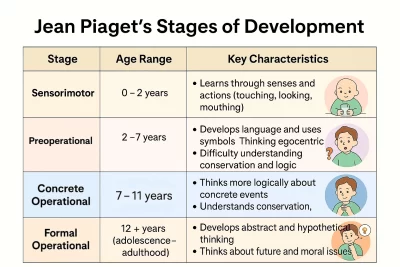
Revere Definition & Meaning: Understanding Reverence Today

The concept of reverence holds significant importance in our lives, shaping the way we perceive and interact with the world around us. The term "revere" is derived from the Latin word "revere," meaning to stand in awe of or to respect deeply. Today, the meaning of revere has evolved, yet it still embodies a sense of high regard and admiration. In an era often marked by cynicism and skepticism, understanding the nuances of reverence is crucial for fostering respect and compassion in our interactions with others.
This article delves into the definition of reverence, its historical context, modern interpretations, and the role it plays in society. The importance of reverence in our personal relationships, leadership, and cultural practices will be thoroughly examined, providing insights into how cultivating an attitude of reverence can lead to a more harmonious existence. By exploring various examples, we can gain a deeper appreciation for the diverse expressions of reverence across different cultures and time periods.
- Definition of Revere
- Historical Context of Reverence
- The Importance of Reverence in Society
- Modern Interpretations of Reverence
- Examples of Reverence in Different Cultures
- The Role of Reverence in Personal Relationships
- The Impact of Reverence on Leadership and Authority
- How to Cultivate an Attitude of Reverence
- Conclusion: The Relevance of Reverence Today
Definition of Revere
To revere means to regard someone or something with deep respect and admiration. The term is often associated with feelings of awe and veneration, where the object of reverence is held in high esteem due to their actions, influence, or significance. For instance, a community might revere its leaders or historical figures, acknowledging their contributions or sacrifices that have impacted society positively.
In many religious contexts, the act of revering can manifest through rituals and worship, where followers show profound respect for deities or sacred texts. This sense of devotion goes beyond mere admiration; it encapsulates a relationship characterized by honor and commitment to the values embodied by the revered entity.
Historical Context of Reverence
The historical roots of reverence can be traced back to ancient civilizations, where reverential practices were central to religious and cultural life. In societies such as the Greeks and Romans, individuals were often revered based on their achievements or societal roles, leading to the establishment of myths and legends that highlighted their virtuous deeds.
Over time, the concept of reverence transitioned into various philosophical and ethical frameworks, influencing leaders and thinkers who emphasized the importance of respect in moral conduct. Philosophers such as Kant discussed reverence in the context of duty and respect for humanity, underscoring its role in establishing a moral society.
The Importance of Reverence in Society
Reverence is vital for building a cohesive and respectful society. It promotes understanding and empathy among individuals, creating a sense of community that allows for collaboration and peace. When people revere others, they acknowledge their worth and contributions, fostering an environment where individuals feel valued.
Moreover, a society that embodies reverence can facilitate dialogues, addressing differences with a mindset geared towards understanding rather than conflict. In educational systems, teaching students the importance of reverence for diversity, history, and leaders can cultivate future generations that prioritize respect and honor.
Modern Interpretations of Reverence
In today’s fast-paced world, the interpretation of reverence has adapted to contemporary values and challenges. While the core essence remains anchored in respect, modern perspectives often intertwine reverence with concepts like mindfulness and awareness. Individuals are encouraged to be present and appreciative of those around them, leading to a more profound sense of connection.
The digital age has also altered the way we express reverence. Social media platforms enable individuals to celebrate those they admire, broadening the scope of revering to encompass a diverse array of figures, including influencers, activists, and everyday heroes. This shift reflects a more inclusive understanding of respect and admiration.
Examples of Reverence in Different Cultures
Reverence manifests differently across various cultures, illustrating the universality of respect while accommodating local traditions and beliefs. For instance, in many Indigenous cultures, ancestors are revered as the foundational figures of their communities. Rituals and ceremonies often invoke their spirits, highlighting the enduring impact of ancestry on identity and belonging.
In Asian cultures, respect for elders is deeply rooted in social norms, where individuals are taught from a young age to revere those who have lived longer and possess wisdom. This cultural reverence fosters intergenerational relationships and mutual respect within families and communities.
The Role of Reverence in Personal Relationships
In personal relationships, reverence is critical for nurturing trust and admiration between individuals. When partners revere each other, they recognize and honor each other's strengths, weaknesses, and aspirations, creating a supportive environment conducive to growth.
Having a sense of reverence for loved ones can lead to deeper bonds and improved communication. It encourages individuals to celebrate one another’s achievements and provide support during challenging times, thus fostering resilience and unity in relationships.
Reverence plays a considerable role in shaping effective leadership. A leader who is revered by their followers inspires trust, loyalty, and motivation. This respect often translates into a positive organizational culture where individuals feel empowered to contribute to collective goals.
Revered leaders tend to exhibit qualities such as integrity, empathy, and humility. Their ability to connect with followers on a personal level reinforces their authority while allowing them to lead with compassion and vision. This dynamic facilitates an environment where individuals are more likely to engage positively with their leaders, leading to heightened productivity and satisfaction.
How to Cultivate an Attitude of Reverence
Developing an attitude of reverence requires intentional practice and mindfulness. Here are some ways to cultivate this virtue:
- Practice Gratitude: Regularly reflect on the positive aspects of your life and acknowledge those who contribute to your happiness and growth.
- Be Present: Engage fully with people, paying attention to their words and actions, which fosters deeper connections.
- Learn from Others: Approach interactions with a mindset of humility, recognizing that everyone has something valuable to teach.
- Honor Traditions: Engage in cultural practices that emphasize respect, whether through rituals, storytelling, or communal events.
- Reflect on Leaders: Identify figures you revere and consider the qualities that earn them your respect; strive to embody those traits.
Conclusion: The Relevance of Reverence Today
In an increasingly interconnected world, the relevance of reverence cannot be overstated. Understanding and applying the concept of reverence leads to greater respect, compassion, and connection among individuals. As we navigate our complex lives, embracing reverence for ourselves and others offers a pathway to foster collaboration, harmony, and admiration in our communities.
By cherishing the concept of revere and actively practicing it in our daily interactions, we contribute to a culture that values respect and honor, making the world a more understanding and compassionate place for all.
Did you find this article helpful? Revere Definition & Meaning: Understanding Reverence Today See more here Education.
Leave a Reply






Related posts